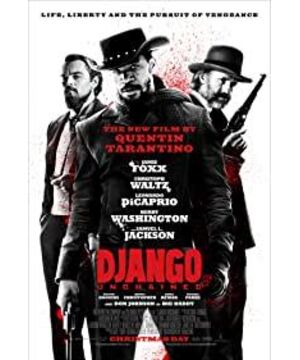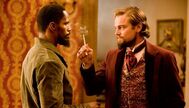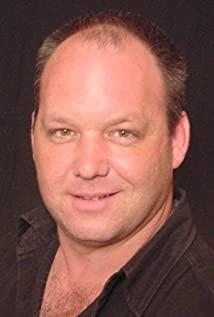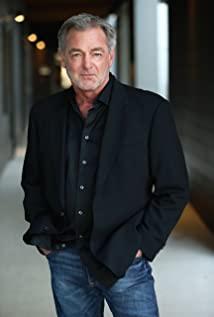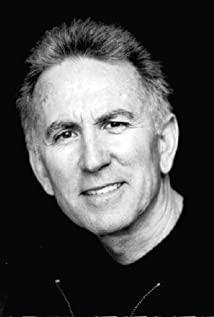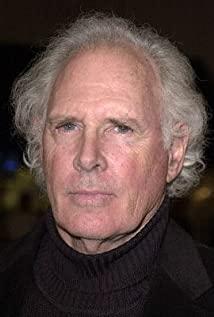Hearing that Christoph Waltz won the Oscar again, I was relieved: Doctor, you can just look at it. My favorite scene in the film was the confrontation between the two when Leonardo wanted to give the doctor another shot and insisted on shaking hands with him in the past. At this time, the doctor was upset by the maid’s "For Alice". The scene of the black slave being tortured and killed was played back in front of him. His conscience told him that he could have not died, as long as he was willing to save him, and he chose at the time. It is just to disguise his identity. Now that the identity is revealed and the achievements are defeated, then the sacrifice of the black slave is worthless. The doctor's irritation did not lie in the money, but in the sacrifice of a human life. The role played by Leonardo obviously did not expect this level. He is a person without compassion. The empathy effect played by the compassionate heart does not work for him. He only thinks that the doctor can't afford to lose. In the end, the doctor also said some hard words to him that he would never see him, so his pride was offended, and he decided to beat down the dog and frustrated the other party's last bit of spirit. He stopped the doctor who was about to leave and said: In our south, there is a custom that when a transaction is completed, both parties must shake hands and show sincerity.
The doctor said: I am not a southerner. (Turning head and leaving) Leonardo said loudly: But you are in my house, so I insist on shaking hands. The doctor said: Persevere? What to stick to? Do you insist on shaking hands with me? Then I am afraid I will insist on not shaking hands with you. Leonardo: Do you know what you are in my eyes? The doctor continued with an indifferent attitude: What is it? I have no idea. Leonardo: I think you are a person who can't afford to lose. The doctor shot back: I think you are a man who can't win. Leonardo: In Chicaso County, if the two parties don't shake hands, the transaction is not completed, and the signed documents are not bullshit. If you don't shake hands with me... Doctor: If I don't shake hands with you, don't you want the 12,000 yuan? I do not believe. Leonardo turned to his bodyguard: Mr. Butch, if this black slave accusing German doesn't hold my hand, and this black slave wants to leave, you will shoot her. The bodyguard slowly raised his gun and pointed it at the female slave. The doctor's facial features were distorted at this time. He said: Do you really insist on shaking hands with me? Leonardo had already seen the other party's submission, and stretched out a hand triumphantly: I insist. The doctor stretched out his hands helplessly and said: If you insist. Then he strode over, raised his hand, his secret pistol popped out of his cuff, and knocked Leonardo to death. I like this passage for the same reason as I like "Heat". The former uses a fragment and the latter uses the length of a movie. Both tell us: In a life based on yourself, you actually don’t have it. Selected. The doctor knew that he shot Leonardo to death, and he was bound to be in a room full of the opponent’s armed forces, but it was like the sentence he turned around and said: "I'm sorry, but I just can't control it." It can be said that this is cleanliness, it can also be said that it is the bottom line, or self-esteem. Everyone's self-esteem is different. The doctor's self-esteem is not about "losing". His bottom line is that he has to succumb to the people he hates. This is something his self-esteem cannot bear. A person's bottom line determines what he will do and what he will not do. Usually these two points also determine what a person will become. So at this time, if he doesn't shoot, he is not him.
In "Heat", the director used Al Pacino and Robert De Niro to show (show, not explain) the same reason. The policeman played by Pacino and the thief played by De Niro each have their own problems: Pacino has been divorced once and has a daughter who is extremely anxious. The current girlfriend always blames him for loving work but not himself; Deni Luo Shengli came and died, yearning for the warmth of the family, but he was always alone, and when he met a girl he liked, he couldn't love him like an ordinary person. On the night of the decisive battle, Pacino's daughter attempted suicide, and his girlfriend was looking after her in a panic and fear in the hospital. Pacino also said, I will stay, not going anywhere. At this time, everyone knows. There is no doubt about staying. Important to his police duties, if Pacino chooses not to hunt De Niro at this time, everyone will think it is reasonable. However, this reasonable and reasonable "fit" is not the character's heart, but the worldly truth, so when his girlfriend said to him, go, it doesn't matter, when there is me here, Pacino rushed out of the hospital all the way-inner Choice is often beyond the worldly right and wrong. And De Niro, at this time, has successfully escaped, driving his beloved woman on an unobstructed road. It is also here. De Niro once again demonstrated his subtle and profound acting skills: his fingers in turn blocked On his lips, his eyes flickered, and there was an uncontrollable anxiety on his face. When he looked at the female partner sitting next to him, he suddenly smiled embarrassedly, but the depressed female partner did not know his struggle at the moment. However, the discerning audience saw De Niro's performance already know: he will go back. There is a rule in his heart, a kind of self-righteousness, which urges him to go back and kill the traitor who betrayed his brother no matter what the situation, even if doing so will lose his handy happiness and his own life. The embarrassed smile when facing a female partner is a double shame. It is not only an apology to the girlfriend, but also an irritation to be seen through, because his behavior just confirms when Pacino was sitting across the table. Prediction to yourself: "So if one day, if it is necessary, you will leave the one you love without hesitation and just blend in with the crowd and sneak away?" De Niro replied indifferently: "Yes Yes, I will." The most incisive thing about the director is that in this film, he abandons the core opposition of traditional police and gangster films, that is, the opposition of identity, the opposition of light and darkness. On the highway, when the two of them got off their respective cars and entered the coffee shop on the side of the road to drink coffee with peace of mind and interest, this opposition ceased to exist. At this time, both of them wanted to know what kind of opponent could keep abreast of themselves. The two sat down like ordinary people, chatted, and then left peacefully. During this process, the audience also knew what caused the confrontation between the two people-paranoia, it is the same paranoia. I am very good at crime. If I do well, I will do it. Maybe I can make a lot of money in business, but I just won’t do it. I’m a good detective and I’m very good at catching criminals. Then I just do the job of catching criminals, and doing business can make more money, so what? I just can't do it. All other things in the world are based on this principle. You can become anyone and do any profession, but once you are identified, it is difficult to change. It is not that there are no conditions, but that you will not make such a choice. There is only one way in the world, and that is the way you are walking. At the last juncture, the director of the screenwriter gave both of them a choice-and it was a better and more reasonable choice: staying to accompany relatives to repair the rift in the relationship, and to take the lover to a happy country abroad-in order to make the audience understand This is not a question of being a policeman or a gangster: Responsibility alone cannot make a policeman hunt down criminals when his daughter has attempted suicide and is in the hospital, and De Niro risked his life to clean up the door and it has nothing to do with money. . Neither of them chose the better path because they couldn't ignore the strongest desires in their hearts. In the end, when De Niro died under the gun of Pacino, Pacino suppressed his unspeakable mood and held De Niro's hand with sympathy until he died, which was actually sighing about the other himself. fate. Finally, I wrote this comment that I wanted to write a long time ago, but also to tell myself in black and white that there is nothing wrong with surrendering and following your heart. No matter what the world tells you, you can only be yourself. At the last juncture, the director of the screenwriter gave both of them a choice-and it was a better and more reasonable choice: staying to accompany relatives to repair the rift in the relationship, and to take the lover to a happy country abroad-in order to make the audience understand This is not a question of being a policeman or a gangster: Responsibility alone cannot make a policeman hunt down criminals when his daughter has attempted suicide and is in the hospital, and De Niro risked his life to clean up the door and it has nothing to do with money. . Neither of them chose the better path because they couldn't ignore the strongest desires in their hearts. In the end, when De Niro died under the gun of Pacino, Pacino suppressed his unspeakable mood and held De Niro's hand with sympathy until he died, which was actually sighing about the other himself. fate. Finally, I wrote this comment that I wanted to write a long time ago, but also to tell myself in black and white that there is nothing wrong with surrendering and following your heart. No matter what the world tells you, you can only be yourself. At the last juncture, the director of the screenwriter gave both of them a choice-and it was a better and more reasonable choice: staying to accompany relatives to repair the rift in the relationship, and to take the lover to a happy country abroad-in order to make the audience understand This is not a question of being a policeman or a gangster: Responsibility alone cannot make a policeman hunt down criminals when his daughter has attempted suicide and is in the hospital, and De Niro risked his life to clean up the door and it has nothing to do with money. . Neither of them chose the better path because they couldn't ignore the strongest desires in their hearts. In the end, when De Niro died under the gun of Pacino, Pacino suppressed his unspeakable mood and held De Niro's hand with sympathy until he died, which was actually sighing about the other himself. fate. Finally, I wrote this comment that I wanted to write a long time ago, but also to tell myself in black and white that there is nothing wrong with surrendering and following your heart. No matter what the world tells you, you can only be yourself.
View more about Django Unchained reviews


